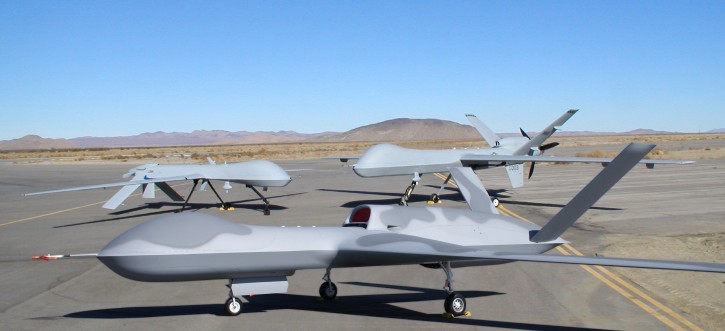EFAD Statement: Why Trump’s loosening of export rules needs a strong response

With the Trump administration announcing a new export policy on armed drones that lowers the bar for the sales to countries worldwide, it is more urgent than ever for the international community to clearly agree on what the acceptable uses of these weapons technologies are in order to increase civilian protection and prevent unlawful killings.
Victims of drone strikes
There has recently been a sharp increase in the number of States seeking to acquire armed drones. However, this global picture is developing in the context of drone operations that have caused harm and suffering in communities – from civilian deaths and injuries, to the destruction of property, and a severe psychological toll. US covert operations in Yemen, Pakistan and Somalia in particular have presented a situation where victims of drone strikes and their families have been denied justice, effective, prompt and impartial investigations, reparation and there has been a lack of accountability for potentially unlawful strikes. Serious concerns about unlawful use and ‘targeted killings’ have been raised by human rights and humanitarian organisations, affected communities and UN Special Rapporteurs. These concerns, and the rights and needs of victims, have not yet been adequately addressed. Few States, including those already using armed drones, have clarified their positions on these issues.
With the rapid development and proliferation of armed drones, robust rules for export of these unmanned systems are part of the international response needed to prevent misuse, including for violations of international human rights and humanitarian law. Under international law, States must not export drone systems and related technologies to governments if there is a clear risk this could lead to serious violations of international human rights law or facilitate war crimes. At the same time, States must clarify what constitutes the ‘responsible use’ of armed drones within existing international legal frameworks.
Profit above principles
The new US drones export policy is driven by concerns over global competition with other drone producing countries and aims to boost the US arms economy. It is also grounded in the conviction that States need drones for counter-terrorism operations. By removing technical or policy barriers that limit sales, the new policy means more countries will now be able to acquire armed drones. This will include States that previously would not have been permitted to do so due to concerns over potential unlawful use of lethal force.
The changes also allow for the direct commercial sales of both armed drones and unarmed drones equipped with laser designators, used for targeting, to other countries, without special scrutiny by the US government. While the recipients will have to sign up to non-legally binding ‘principles of proper use’, the policy leaves numerous caveats through ambiguous language. The US government’s refusal to make public its own current policies on the use of armed drones makes it difficult to assess how they will make risk assessments for export authorizations. If current US sales of other weapons to countries using them unlawfully are anything to go by, the planned US boost in exports of armed drones will not make the world a safer place. This could set a bad precedent for the wider international debate on curtailing unlawful uses of these technologies. The legal and political challenges created largely by US armed drones use should be met by the international community with a principled human rights-based response.
Need for progressive change
Members of the European Forum on Armed Drones involved in international discussions around the use of armed drones have witnessed a concerning lack of commitment from States to take such action. European States should take leadership on this issue and ensure a meaningful international debate takes place, leading to agreement on clear and transparent standards and norms on the use of drones in line with international law.
EFAD is calling on all States to strengthen international law standards by articulating clear policies on the use and transfer of armed drones and ensuring transparency, accountability and victims’ right to remedy. States should also ensure they do not provide assistance to another state’s lethal drone operations, for example by sharing data which could be used for targeting, where there is a reasonably foreseeable risk that this will contribute to a violation of international human rights or humanitarian law, and should support strict export regulations and risk assessments to prevent the irresponsible use of drones by other states or non-state actors.

